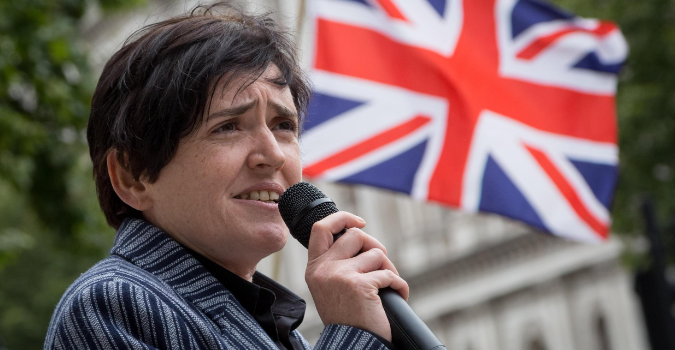
Return Highlights Shift in Party’s Direction and Response to Political Landscape
Anne Marie Waters, the founder of the far-right group For Britain, has rejoined UKIP as the party’s justice spokeswoman, marking a significant return to the political arena after years spent leading her breakaway party.
Waters, who was once a member of the Labour Party before shifting dramatically to the right, initially joined UKIP in 2014 but left to form For Britain following an unsuccessful leadership bid in 2017. UKIP, which gained prominence under former leader Nigel Farage, announced on Wednesday that Waters’ return would help unite the “fragmented” right wing of British politics and push back against what they termed “woke-drunk” politicians.
However, Gregory Davis, a researcher with Hope Not Hate, remarked that Waters’ return underscores the extreme direction in which UKIP has moved. He noted, “When Waters stood for UKIP leader in 2017 she was rejected for being too extreme; now they’ve welcomed her back with open arms. Both UKIP and Waters are a spent force in British politics.”
Hope Not Hate has previously labeled Waters as one of the UK’s most prominent anti-Muslim campaigners, citing her long history of attempts to associate Islam with violence and social degradation. In a controversial statement made during a 2015 event, she called for a complete halt to immigration from Islamic countries and suggested that many mosques needed to be closed.
During her leadership bid for UKIP, Waters asserted that “Islamic culture is simply not compatible with our own,” reflecting her hardline stance on immigration and cultural integration.
In her statement upon rejoining UKIP, Waters expressed her belief that the party represents the “sane side of politics” and is one of the few political entities fighting for truth and justice in Britain. She emphasized the need for a unified front to combat the establishment, asserting that this effort should occur under the UKIP banner.
UKIP experienced its peak success in the 2014 European parliamentary elections, where it became the first party aside from Labour or the Conservatives to win a national vote in modern British history.









